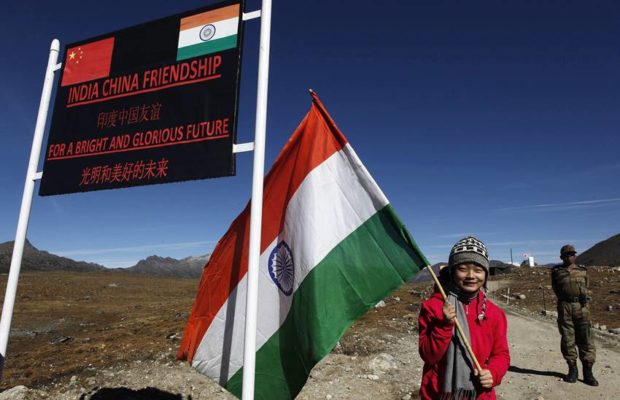On September 30, 2021, reports surfaced showing that over 100 soldiers of China’s People’s Liberation Army (PLA) had crossed across the Line of Actual Control (LAC) into the Barahoti sector of Uttarakhand in August. The PLA soldiers damaged some infrastructure on the Indian side, including a bridge, and then retreated back. In June 2020, 20 Indian soldiers were killed in clashes with Chinese troops in Ladakh’s Galwan Valley. This incident marked the first instance of lethal conflict between India and China in over 45 years. Earlier, in mid 2017, a standoff took place between Indian and Chinese troops as India intervened to stop the expansion of a road into the Doklam region of Bhutan.
While the crossing of PLA troops into Uttarakhand this year hasn’t been acknowledged by India yet, the government’s reaction to the other two instances of conflict demonstrates how little strategic attention it is paying to understand China’s motivations and the future course these conflicts would take. The first public reporting of Chinese intrusions in Ladakh was by the journalist Ajai Shukla on May 23, 2020, where he claimed that China violated its own claim line. His report stated that “There is little clarity within the government about why the Chinese have triggered this intrusion, along with another simultaneously in Sikkim,” which indicates total surprise on the part of the government in even anticipating intent.
The government immediately denied the reports, but India’s defence minister, Rajnath Singh, spoke to his US counterpart, defence secretary Mark Esper, on May 30, 2020 about these intrusions and confirmed it on June 3, 2020. What came afterwards makes the matter more worrying for India’s national security than past disputes. Prime Minister Narendra Modi came on national television on June 19, 2020 and categorically stated that ‘No one entered Indian territory, no border posts were occupied’, two days after 20 Indian soldiers had lost their lives.
The prime minister’s statement was interpreted by the Chinese side as implying that the Indian soldiers had died on Chinese territory, thus handing a PR victory to China. As Ajai Shukla pointed out later, all official acknowledgements that the Chinese had indeed transgressed into Indian territory disappeared from the website of the Ministry of Defence after the prime minister’s statement.

Prime Minister Narendra Modi at an all-party meeting to discuss the India-China standoff in Ladakh in 2020.
While the events leading up to the border skirmishes raise several important questions about India’s intelligence and military operations, the stance taken by India’s political leadership and the lack of demand for fixing responsibility from citizens is important to understand. The explanation for this isn’t found in any changes in India’s foreign policy or strategic thinking, it is instead found in the transformations that have taken place within India’s domestic political setup.
As a chapter of our book The Art of Conjuring Alternate Realities (HarperCollins, 2021) outlines, in a quest to establish complete control over India’s polity and the information that reaches Indian voters, the ruling BJP has over the past few years moved to capture every institution of India. From the media, bureaucracy, investigative bodies, intelligence organisations to statistical bodies, the BJP successfully established control that allows it to set and sustain its own narratives regardless of factual accuracy.
Since the primary focus of India’s political dispensation is in maintaining these internal narratives, it focused on showcasing victories against China during the Doklam conflict even when evidence exists that Chinese construction activity in the region did not stop after the conflict. When the PM proclaimed that Chinese troops never entered India, he was attempting to maintain his strongman image for a domestic audience, even when it weakened India’s strategic position.
The repurposing of institutions has also ensured that they are headed by ‘yes men’ who, in order to protect their own career interests, would not bring conflicting viewpoints to the leadership. Though this has ensured the BJP’s supremacy in domestic politics, illustrated by the fact that the citizenry is not demanding any governmental accountability on issues, it inevitably deprives decision makers of multiple perspectives because diversity in perspective is often interpreted as dissent and crushed.
Revelations such as the use of Pegasus spyware being deployed against journalists, activists and political opponents also showcases how India’s intelligence agencies have been repurposed to focus on domestic surveillance for political purposes – something that would inevitably lead to a detraction of focus from the actual work of intelligence gathering for the maintenance of national security.
Viewed from these perspectives, it is clear why India failed to anticipate China’s moves across the LAC and doesn’t even acknowledge the issue. The total and complete hegemony of the ruling party in setting the narrative, and the ensuing institutional capture, has obliterated critical thinking at a structural level within the highest levels of decision making in government, while the political need for doing so has also evaporated. The capability to defend a country against external aggression is not permanent; it is based on the bureaucracy selected to serve for this purpose working consistently, and when those selection decisions become political, it inevitably weakens the systems designed for the nation’s protection.
Through India’s handling of the Doklam conflict and the border skirmishes in Ladakh and Uttarakhand, it has become increasingly clear that the Modi government’s priority is the maintenance of domestic narratives and political power. This has created significant and lasting vulnerabilities in India’s national security, a fact that if not addressed will inevitably be exploited to India’s detriment.
































